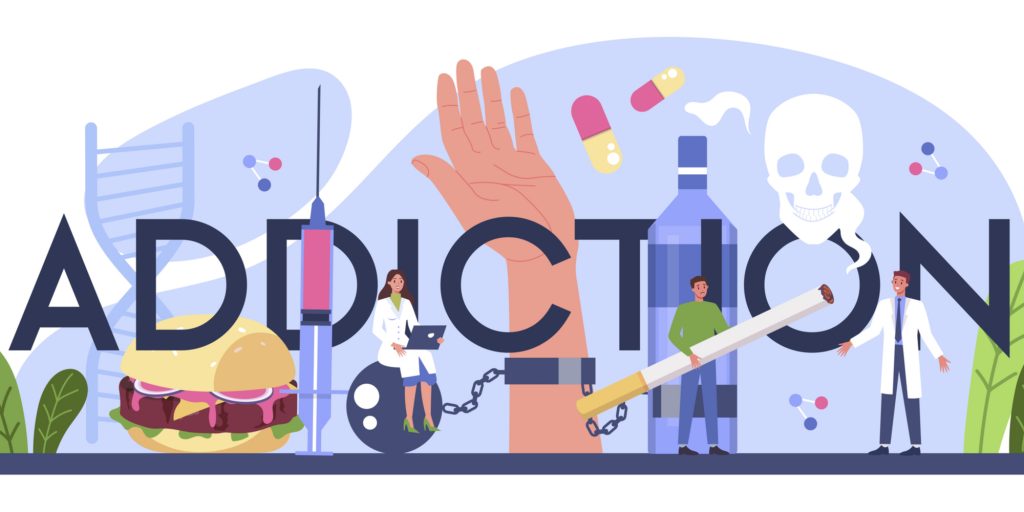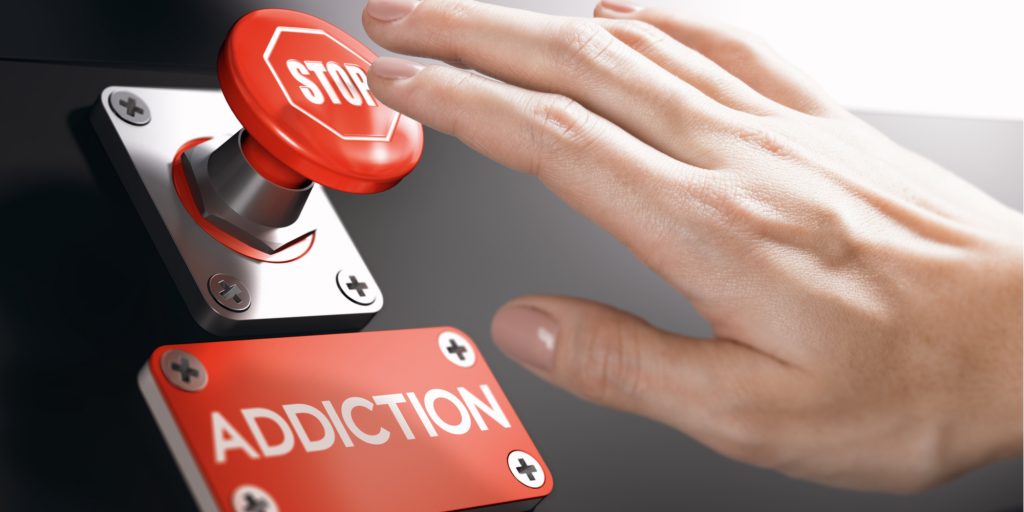
Nobody starts drinking or using drugs with the intention of becoming addicted. But over time, individuals often find themselves drinking at every opportunity or using increasingly high dosages of drugs to chase a high. When this inevitably leads to trouble, many people are surprised to find that they don’t know how to stop an addiction to drugs or alcohol. And with no clear path forward, they often lapse into long-term addiction.
That is how the situation often unfolds, but this does not have to be your story. Quitting drugs and alcohol is entirely possible, provided you know how. That’s why we’re sharing three steps on how to beat an addiction for good. But first, it’s important to understand what makes quitting drugs and alcohol so hard to begin with.
Why Is Quitting Drugs and Alcohol So Hard?

When people first try to quit and can’t, it’s easy to feel like there’s some kind of personal failing. People may ask themselves “Why aren’t I strong enough to quit?” or “What’s wrong with me?” But the truth is that it’s normal to not know how to stop an addiction. In fact, there are many complex biological and psychological factors that make quitting so challenging.
Over time, addictive substances make gradual changes to your brain’s neural pathways that control feelings of success and accomplishment. This happens because each time you take these substances, they activate your brain’s reward system. So when you try to quit using, your brain remembers these feelings of accomplishment and starts to crave them. This can be partially responsible for the intense cravings that people receive when they try to stop an addiction.
Another major cause of trouble stopping an addiction is related to your body’s tolerance. The more you use over a long period of time, the more your body gets used to it. This is why chronic drug and alcohol users need so much of their chosen substance to get as drunk or high as they used to when they started.
Of course, continually increasing amounts used is a recipe for overdose, which is part of why substance abuse can be deadly. But lowering your tolerance can be challenging, since quitting cold turkey can lead to withdrawal symptoms. And the issues that withdrawals create can be a variety of things, including:
- Anxiety and paranoia
- Depression
- Nausea and vomiting
- Stomach cramps
- Hallucinations and delirium
- Seizures
For these reasons, many people relapse in early recovery just to make the withdrawals stop. But figuring out how to stop an addiction requires more than just considering biological issues. It’s also important to understand the psychological impact of addiction.
How Mental Health Issues Make It Harder to Quit
In many cases, individuals start using drugs and alcohol to cope with mental illness symptoms. For example, a person with bipolar disorder might use alcohol to calm down when they’re in a manic state and then use stimulants to counteract a depressive episode. In this way, mental illness and substance abuse can become tied together over time, which clinicians call co-occurring disorders. And when you decide to learn how to stop an addiction to drugs or alcohol, this can make the quitting process more complicated.
A large part of the issue is that solely quitting drugs or alcohol does not solve the problem. With an untreated mental health issue below the surface, there will always be a reason to relapse. Since drugs and alcohol serve as substitutes for coping mechanisms, removing them can make mental illness symptoms feel even worse. This is especially true if you do not have any mental health support in place when you decide to quit.
How to Stop an Addiction to Drugs and Alcohol

Clearly, there are many biological and psychological factors at play in long-term addiction. But all of them can be overcome. Now that you’ve got a good understanding of the struggles of quitting, it’s time to look at how to stop an addiction.
1. Take Stock of Your Environment
The situation around you can greatly influence your success with quitting. For example, do you have a safe, calm place to stay? Quitting requires a lot of focus and clarity, which can be hard to get at home. This is especially true if people in your life drink or use drugs, since you may be tempted to relapse if you see them. In general, quitting at home takes a level of self-control that not many people have, especially if your home isn’t a relaxed, sober environment.
For this reason, many people choose to stop an addiction by enrolling in a medical detox program. With 24/7 support and medical monitoring, you can rest in a sober, safe environment where medical professionals will help manage your withdrawal symptoms. Not only is this more comfortable, but it also greatly increases your odds of successfully quitting drugs or alcohol.
2. Consider Why You Started Using
When substance abuse initially develops, it’s usually in response to a problem in one’s life. What was that problem for you? And has it been resolved? For example, short-term substance abuse can happen in response to a distressing life event, like losing a loved one. But as those feelings go away, people slowly regain control of their lives and rely less and less on drugs and alcohol.
But if addiction starts in response to a mental health issue or if life events cause negative feelings that haven’t been resolved, recovery can be more complicated. For these situations, it’s advisable to seek professional treatment for co-occurring disorders. With this level of care, both your addiction and the underlying cause can receive expert attention. If you’re struggling with how to stop an addiction, this could be an important step in your recovery.
3. Reach Out for Help
If you’re struggling with how to stop an addiction, you may need professional support to reach your goal. In the early stages, sobriety can feel like it’s worlds away. But the truth is that help is within reach—all you have to do is ask for it.
To learn more about how The Blackberry Center can help you quit drugs and alcohol for good, call our admissions specialists at 888-512-9802 or ask your questions online. Recovery is always closer than you think, and we’re ready to help if you’re ready to quit for the last time.
The post How to Stop an Addiction in 3 Simple Steps appeared first on The Blackberry Center of Central Florida.
Source
Original Author: The Blackberry Center

